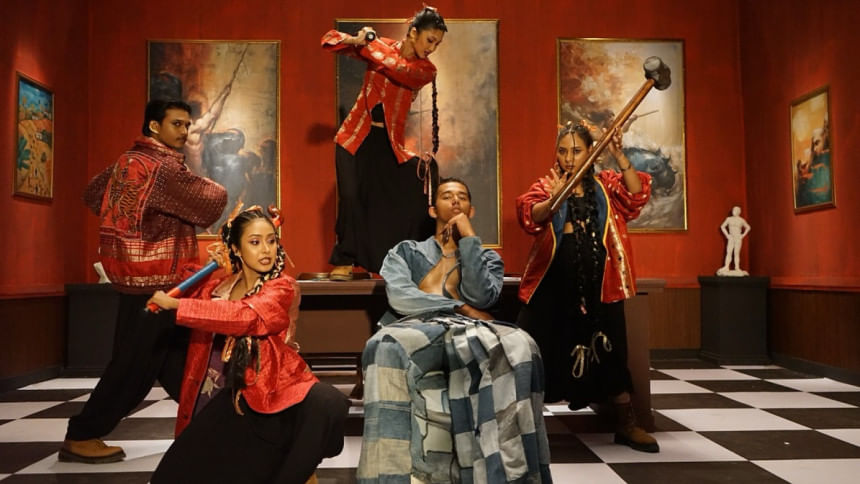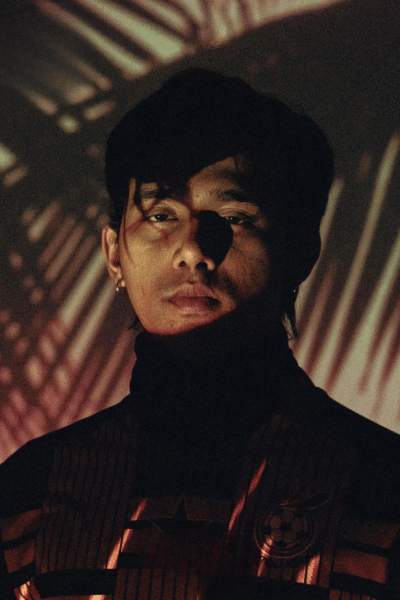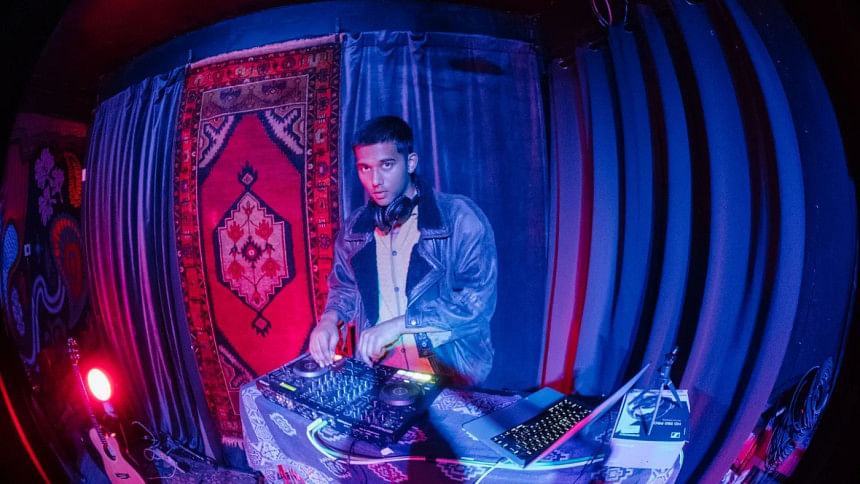Dameer steps out of his ‘Khancha’

"I might have been making a name for myself during the tail end of my teenage years, but that also entailed eventually making deals and working with questionable people," divulged Dameer Khan. The once-emerging, unprecedented talent, who shot to popularity, recently spoke with The Daily Star over a call from Canada to exclusively share his story — one that involved undergoing a critical legal dispute with his ex-management while assembling his nightlife business from the ground up, prior to the release of "Khancha".
At the beginning of the year, the McGill University graduate had already posted as much as he publicly could about his situation. Now, as he spoke, he not only sounded enthused about returning to his life as a musician but also seems to find in himself an assured sense of poise. He reflected on his journey to launching his business, "I had some terrible experiences which revealed how corrupt certain ranks in the industry are, but I got lucky to some extent because I am a man. It also made way for me to begin DJing, in case anyone was wondering about the sudden change in my profession."

In Dameer's own words, "Generating music is my craft, but once the legal dispute began, it unfortunately kept me from crafting. However, the booming nightlife in Canada saved my life, and I learned aspects about running a business that I wouldn't have otherwise. The large number of young Bangladeshi diaspora here, who I believe are stubbornly patriotic, would seek out Bangladeshi music as opposed to other South Asian musical arrangements. This led my business partners and me to come up with a show booking venture, and eventually, we began booking diverse artistes from other countries. Their demands for our Bangladeshi artistes like Arnob, Mila and others also drove me to drop the remixes of existing good songs on YouTube recently."
The "Amar Jaan" singer had to learn to run their venture while working on it, despite knowing and believing he would pursue music after graduating with his Bachelor of Arts (BA) degree in Political Science and Economics. The professional detour proved to be a green flag for him. "I'm grateful for it because now I know that I can't be messed with easily." On finally finding his way back to music, Dameer made the most out of his contacts. "To maintain my relevance, I DJed and kept my existing music around people. I simultaneously negotiated with labels and their associated personnel, securing funding for my new music. I even worked with a team of Bangladeshi filmmakers, and we shot a music video last March."
This is where Dameer dropped the bomb — his new track, "Khancha", which is intrinsically artistic and loosely speaks of the July Uprising, was intentionally released on August 5, aligning with the day the revolution won. He believes it's debatable whether we, as a nation, have truly earned freedom of speech. And yet, he added, "For me, for the first time in my life, we have the closest semblance to it. Remember how we were terrified that our phones might be tapped before and even during the Internet shutdown last July? And afterwards, we realised the previous fascist regime made empty threats regarding cyber surveillance. It made me think of the Bangla proverb, 'If you clip a bird's wings, you don't need a cage.' The concept of 'Khancha' hence originated from that thought."
"Khancha", which sounds like nothing short of a powerful anthem, flexes Dameer's melodious and powerful vocal range. Departing from his familiar style of laid-back storytelling in music videos, Dameer excels at shifting gears from the genre he is already known for. The statement, "Break the mind's cage, let all that's caged fly free…," is placed beneath the video to not only hint at the meaning of the production but in a way it also implies that Dameer is exploring new ground in all creative aspects — be it in composing, sound designing and mixing and even storytelling. The music video, directed by Monzur Anik, feels like a triumphantly resolute promise of newer, fresher productions on the horizon.

Looking ahead, he strongly believes that Gen Z needs to buckle up and dedicate itself to properly restructuring the artiste management system. "We barely have institutional strength and integrity. A person with good ideas or talent doesn't naturally possess a business sense, especially in a country where Intellectual property (IP) law is not respected and musicians are never appropriately paid. As artistes, we need solid structures, labels, government support, and IP law protection, among other necessary changes."
"Don't get me wrong—the industry has many well-intentioned people, and I survived thanks to my supportive community and family. I was protected. But it's a cold world, and new artistes need to be careful. They're often exploited because they can't read contracts, and good entertainment lawyers are rare. It's a tough industry, so you need to be resilient and smart."
Dameer's existing body of work primarily consists of effervescent indie and psychedelic pop, infused with Bengali influences that seep effortlessly into the listener's consciousness, and holds experience performing across diverse platforms. He had an immediate answer when I inquired which platform he feels the most drawn to. "It is whenever I perform for my Bangladeshi crowds in Dhaka. That's where I get the most love and support, and where I learn the most. I feel fortunate because I have this core fan circle, made up of really smart kids, and sometimes we even talk about politics on my Discord. During the July Revolution, we were continually discussing the circumstances and trying to figure things out."

Whenever he donned his DJ Dameer cap and stood behind turntables or media players to unleash EDM auditory waves into the room he played for, he loved it. "I respect the nightlife, and it's a progressive scene. It is most likely to influence my creative process as a singer and songwriter because it becomes easy to understand what the crowd wants when you play music live as a DJ." When we segued to the burgeoning nightlife scene in Dhaka, Dameer added his two cents. "It has the potential to be the new 'it music scene' in Dhaka, but it is still elitist. It can exist among the upper classes for various reasons. For instance, certain areas allow playing loud music for hours. For it to truly become a citywide practice, it needs to become a norm at TSCs across Dhaka University, Jahangirnagar University, and other similar locations accessible to the masses. Rock music is already familiar to our masses, and the opportunities for electronic music are endless, now more so than ever."
To wrap up the conversation, Dameer acknowledged that he is nervous about the reception of "Khacha" in response to being asked which aspect of singing and performing he can't wait to go back to. "I'm just nervous because I want to do a good job with my musical return. I am taking one step at a time, so we'll see how everything turns out. Musically speaking, delivering a song is equivalent to expressing myself through a different language and connecting to people in that way. I'm very glad about getting to flex my "musician muscles", play my guitar more and work with other musicians. I'm largely glad I get to carry on providing fresh music to my fans."

 For all latest news, follow The Daily Star's Google News channel.
For all latest news, follow The Daily Star's Google News channel. 







Comments